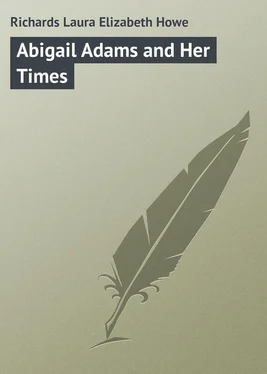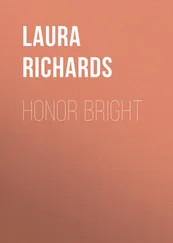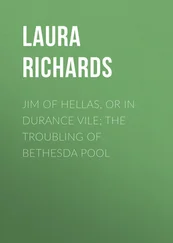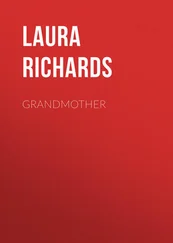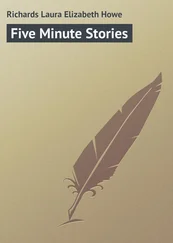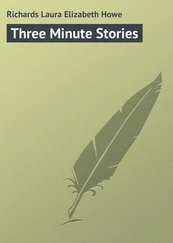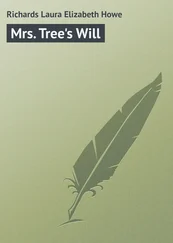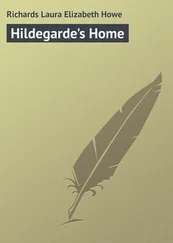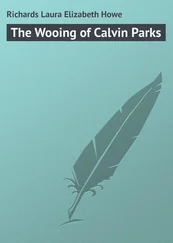Laura Richards - Abigail Adams and Her Times
Здесь есть возможность читать онлайн «Laura Richards - Abigail Adams and Her Times» — ознакомительный отрывок электронной книги совершенно бесплатно, а после прочтения отрывка купить полную версию. В некоторых случаях можно слушать аудио, скачать через торрент в формате fb2 и присутствует краткое содержание. Жанр: foreign_prose, на английском языке. Описание произведения, (предисловие) а так же отзывы посетителей доступны на портале библиотеки ЛибКат.
- Название:Abigail Adams and Her Times
- Автор:
- Жанр:
- Год:неизвестен
- ISBN:нет данных
- Рейтинг книги:4 / 5. Голосов: 1
-
Избранное:Добавить в избранное
- Отзывы:
-
Ваша оценка:
- 80
- 1
- 2
- 3
- 4
- 5
Abigail Adams and Her Times: краткое содержание, описание и аннотация
Предлагаем к чтению аннотацию, описание, краткое содержание или предисловие (зависит от того, что написал сам автор книги «Abigail Adams and Her Times»). Если вы не нашли необходимую информацию о книге — напишите в комментариях, мы постараемся отыскать её.
Abigail Adams and Her Times — читать онлайн ознакомительный отрывок
Ниже представлен текст книги, разбитый по страницам. Система сохранения места последней прочитанной страницы, позволяет с удобством читать онлайн бесплатно книгу «Abigail Adams and Her Times», без необходимости каждый раз заново искать на чём Вы остановились. Поставьте закладку, и сможете в любой момент перейти на страницу, на которой закончили чтение.
Интервал:
Закладка:
"But heyday, Mr. What's your name, who taught you to threaten so violently? 'A character besides that of a critic, in which if I never did, I always hereafter shall fear you.' Thou canst not prove a villain, impossible, – I, therefore, still insist upon it, that I neither do nor can fear thee. For my part, I know not that there is any pleasure in being feared; but, if there is, I hope you will be so generous as to fear your Diana, that she may at least be made sensible of the pleasure. Mr. Ayers will bring you this letter and the bag . Do not repine, – it is filled with balm.
"Here is love, respects, good wishes, regards – a whole wagon load of them, sent you from all the good folks in the neighborhood.
"Tomorrow makes the fourteenth day. How many more are to come? I dare not trust myself with the thought. Adieu. Let me hear from you by Mr. Ayers, and excuse this very bad writing; if you had mended my pen it would have been better. Once more, Adieu. Gold and silver have I none, but such as I have give I unto thee, – which is the affectionate regard of your
"A. S."We know little of the preliminary steps in the courtship. The young lawyer, riding his circuit, naturally passed through Weymouth, perhaps rode directly by the house of Parson Smith. The parson doubtless knew the elder Adams, would naturally offer civility and hospitality to his son; a man of parts himself, he would quickly perceive the intelligence and character of the young lawyer. But the Family at Large was mightily disturbed. Lawyers were looked askance at in those days; the law was a new profession, probably a dangerous, possibly an iniquitous one. Quincys, Nortons, Tynes, all shook their heads emphatically. The whole parish followed suit. What! Abigail, with her wit, beauty, gentle blood and breeding, marry "one of the dishonest tribe of lawyers," the son of a small country farmer? Perish the thought!
The elder sister Mary had been married the year before to Richard Cranch. This was thought a wholly suitable match. Parson Smith preached a wedding sermon, taking for his text, "And Mary hath chosen that good part, which shall not be taken away from her," and everybody was pleased. But no one, except the contracting parties and the Parson, seems to have approved of Abigail's marrying John Adams. This, however, troubled none of the three overmuch. It is true that John had to do his courting without assistance from his future "in-laws." He must tie his horse to a tree and find his Abigail as he could: no one even offered him a courting-stick, that "hollow stick about an inch in diameter and six or eight feet long, fitted with mouth and ear pieces" 8 8 "Customs and Fashions in Old New England." Alice Morse Earle.
through which some lovers, seated on either side of the great fireplace, had to carry on their courtship in the presence of the whole family.
Possibly John Adams might have declined this privilege even had it been offered. He has nothing to say about his courtship, but thus soberly and gravely he writes of his marriage.
"Here it may be proper to recollect something which makes an article of great importance in the life of every man. I was of an amorous disposition, and, very early, from ten or eleven years of age, was very fond of the society of females. I had my favorites among the young women, and spent many of my evenings in their company; and this disposition, although controlled for seven years after my entrance into college, returned and engaged me too much till I was married.
"I shall draw no characters, nor give any enumeration of my youthful flames. It would be considered as no compliment to the dead or the living. This, I will say: – they were all modest and virtuous girls, and always maintained their character through life. No virgin or matron ever had cause to blush at the sight of me, or to regret her acquaintance with me..
"I passed the summer of 1764 in attending courts and pursuing my studies, with some amusement on my little farm, to which I was frequently making additions, until the fall, when, on the 25th day of October, I was married to Miss Smith, second daughter of the Rev. William Smith, minister of Weymouth, granddaughter of the Honorable John Quincy, of Braintree, a connection which has been the source of all my felicity, although a sense of duty, which forced me away from her and my children for so many years, produced all the griefs of my heart, and all that I esteem real afflictions in life."
So they were married, and the parson conveyed a gentle reproof to his family and parishioners by preaching a sermon from Luke vii:33: "For John came neither eating bread nor drinking wine, and ye say, ' He hath a devil .'"
CHAPTER III
THE BOSTON MASSACRE
IT was not a gay wedding, this of Abigail Smith and John Adams. They were married quietly by good Parson Smith, and then, hand in hand, walked across the fields to the little lean-to farmhouse where they were to find so much happiness and to live through such difficult times. It seems unlikely that Abigail enjoyed the pretty Colonial custom of "coming out Bride," of which we read in old diaries and letters. On the first Sunday after the wedding it was customary for the bride and groom, "whether old or young, gentle or simple," to go to church in the very best finery they could muster. If they were well-to-do, they kept this up for the four Sundays of the honeymoon, sometimes – oh, un-Puritan extravagance! – in a new gown and suit each time!
"They usually arrived a bit late, in order to have their full meed of attention; and proceeded slowly, arm in arm, down the broad aisle to seats of honor, in the hushed attention of the entire congregation… At a certain point in the services, usually after the singing of the second hymn, the happy couple, in agonies of shyness and pride, rose to their feet, and turned slowly twice or thrice around before the eyes of the whole delighted assembly, thus displaying to the full every detail of their attire." 9 9 "Two Centuries of Costume in America." Alice Morse Earle.
This would not have suited either Abigail or John Adams. Their tastes were simple, their minds set on far other things than clothes. Mrs. Adams was always neat and trim in her dress, never extravagant or ostentatious. Whether in the little Braintree farmhouse, at the Court of St. James, or as Lady of the White House, she was always the same – simple, modest, dignified: an example and an inspiration to all around her.
The first ten years of her married life were passed happily and quietly, partly in Braintree, partly in Boston, whither Mr. Adams' increasing law practice often called him. Four children were born to her, a daughter named for herself, and three sons, John Quincy, Charles and Thomas.
Mrs. Adams kept no diary; it is to her husband's that we naturally turn for records of these ten years of happy family life. Alas! he has nothing to say about them. He was living his home life; it never occurred to him to write about it. His diary is concerned with public and professional affairs, and with them alone.
It was not till forced apart by the pressure of public duties and private service, that these two loving hearts needed any other expression than the spoken word of affection, cheer and sympathy. It is to the breaking up of their happy home life that we owe the Familiar Letters which are of such priceless value to all students of American history, to all lovers of high and noble thought.
But we have not come to the separation yet; we must consider these ten silent years, and fill in the picture as best we may.
Here is a sketch, boldly drawn by John Adams himself, writing in his old age to a friend, which brings the time before us as nothing else can. He is describing a scene in the Council Chamber in the old Town House, in February, 1761.
Читать дальшеИнтервал:
Закладка:
Похожие книги на «Abigail Adams and Her Times»
Представляем Вашему вниманию похожие книги на «Abigail Adams and Her Times» списком для выбора. Мы отобрали схожую по названию и смыслу литературу в надежде предоставить читателям больше вариантов отыскать новые, интересные, ещё непрочитанные произведения.
Обсуждение, отзывы о книге «Abigail Adams and Her Times» и просто собственные мнения читателей. Оставьте ваши комментарии, напишите, что Вы думаете о произведении, его смысле или главных героях. Укажите что конкретно понравилось, а что нет, и почему Вы так считаете.
